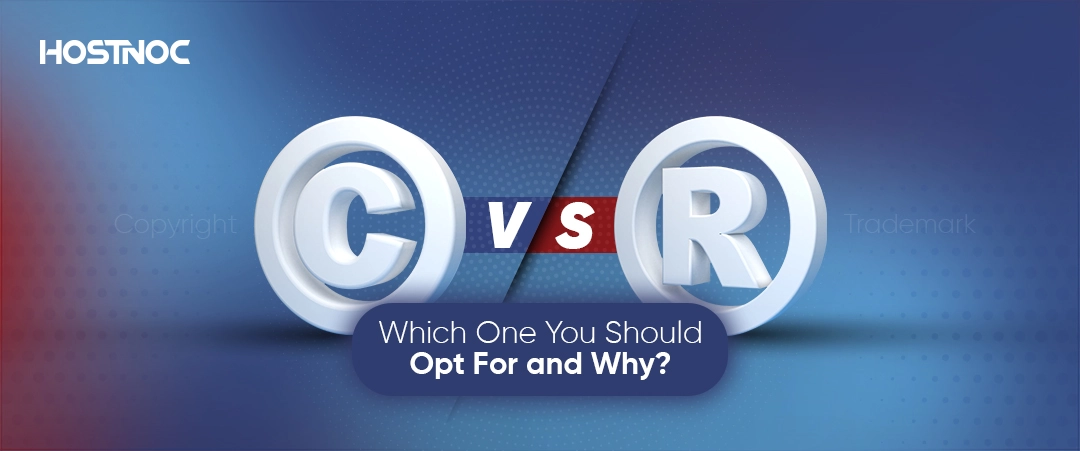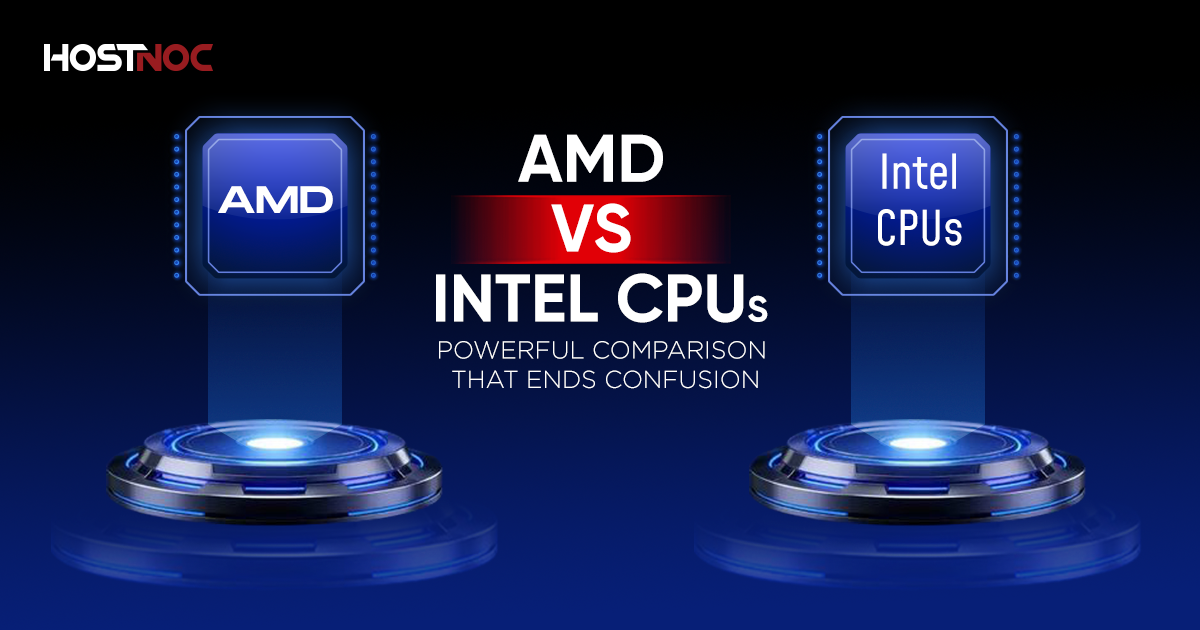Blogs

How to Become a Reseller Without Technical Headaches
May 17, 2024
Ultimate Guide To Confidential Computing
May 22, 2024Copyright Vs Trademark: Which One You Should Opt For and Why?
Intellectual property (IP) is a crucial aspect of the modern business landscape, protecting the creations and innovations of individuals and organizations. Copyright Vs Trademark are two fundamental forms of intellectual property, each serving distinct purposes.
In this article, you will learn about the differences between Copyright Vs Trademark, their applications, and how they contribute to safeguarding creative works and business identities.
Intellectual property (IP) is a crucial aspect of the modern business landscape, protecting the creations and innovations of individuals and organizations. Copyright Vs Trademark are two fundamental forms of intellectual property, each serving distinct purposes.
In this article, you will learn about the differences between Copyright Vs Trademark, their applications, and how they contribute to safeguarding creative works and business identities.
- Copyright Vs Trademark: Which One You Should Opt For and Why?
- What is a Copyright?
- Key Aspects of Copyright:
- What is a Trademark?
- Key Elements of a Trademark:
- Copyright Applications:
- Trademark Applications:
- What are the Key Differences between Copyright and Trademark?
- Overlap and Intersection:
- Conclusion:
Copyright Vs Trademark: Which One You Should Opt For and Why?
What is a Copyright?
Copyright is a legal right granted to the creators of original works, providing them with exclusive rights to reproduce, distribute, perform, and display their creations. These creations can include literary works, music, art, and other original expressions. Copyright protection is automatic upon the creation of the work and generally lasts for the lifetime of the creator plus an additional number of years.
Key Aspects of Copyright:
Here are some of the key elements of copyright.
Originality:
Copyright protection is contingent upon the work being original and fixed in a tangible medium of expression. This means that the work must possess a minimal degree of creativity, and it must be in a tangible form such as writing, recording, or painting.
Exclusive Rights:
Copyright grants the creator exclusive rights to reproduce the work, distribute copies, perform or display the work publicly, and create derivative works. Others cannot use, reproduce, or distribute the copyrighted material without the creator’s permission.
Registration:
While copyright protection is automatic, creators can register their works with the U.S. Copyright Office for additional benefits, such as the ability to sue for statutory damages and attorney’s fees.
Read more: How Small and Mid-size Businesses Can Make The Most of the Cloud Without Getting Stuck?
What is a Trademark?
Trademarks, on the other hand, are designed to protect symbols, names, slogans, and other identifiers associated with goods and services. Trademarks serve as source indicators, distinguishing the origin of products or services in the marketplace. Unlike copyright, trademark protection requires registration with the relevant intellectual property office, such as the United States Patent and Trademark Office (USPTO).
Key Elements of a Trademark:
Here are some of the key elements of the trademark.
Distinctiveness:
Trademarks must be distinctive and capable of identifying the source of goods or services. Generic terms or common phrases are usually not eligible for trademark protection.
Registration:
While common law rights exist upon use, formal registration with the appropriate authority provides significant advantages, such as nationwide protection and the ability to recover damages in legal proceedings.
Renewal:
Trademarks require periodic renewal, and their protection can last indefinitely as long as they continue to be used in commerce and are properly renewed.
Copyright Applications:
Copyright applies to various creative works, such as literary works, music, art, and software. For example, a novelist automatically gains copyright protection upon completing a novel, preventing others from reproducing or distributing the work without permission.
Trademark Applications:
Trademarks are crucial for protecting brand identities and ensuring consumers can distinguish between different products or services. Companies register trademarks for names, logos, and slogans to establish a unique market presence. For instance, the distinctive Nike swoosh logo and the slogan “Just Do It” are trademarked to distinguish Nike’s products from others.
What are the Key Differences between Copyright and Trademark?
Here are some of the major differences between copyright and trademark.
Nature of Protection:
- Copyright protects original works of authorship, such as literature, music, and art.
- Trademark protects symbols, names, slogans, and identifiers associated with goods and services.
Scope of Protection:
-
- Copyright protects the expression of ideas, not the ideas themselves.
- Trademark protects the distinctive elements that identify the source of goods or services.
Registration:
-
- Copyright protection is automatic upon creation, but registration is optional.
- Trademarks require registration to obtain legal protection and registration provides enhanced rights.
Duration:
-
- Copyright protection generally lasts for the lifetime of the creator plus additional years.
- Trademarks can last indefinitely as long as they are in use and properly renewed.
Overlap and Intersection:
Copyright and trademark primarily serve different purposes but there can be instances where they intersect. For example, a logo may be eligible for both copyright and trademark protection. Copyright would protect the artistic design, while trademark would protect the logo as a distinctive identifier of a particular brand.
Read more: How To Modernize Your Enterprise Architecture?
Conclusion:
Copyright Vs Trademark are essential tools for protecting intellectual property, but they serve distinct purposes and apply to different types of creative works. Understanding the differences between copyright and trademark is crucial for creators, businesses and individuals seeking to safeguard their intellectual assets in the evolving landscape of intellectual property law.
Whether you are a writer, artist, musician, or business owner, knowing how to navigate and leverage these protections can make a significant impact on the success and longevity of your creative endeavors. Did this article help you in understanding the key differences between Copyright Vs Trademark? Share your feedback with us in the comments section below.
Brains win battles. Power wins wars. Our servers give you both.
Cores
RAM
Storage
Location
Monthly Price
Link
Specs 1GB/1 CPU
Disk 25GB SSD
Bandwidth 1000 GB Transfer
$11.25 /month
Buy Now
Specs 2 GB/1 CPU
Disk 50 GB SSD disk
Bandwidth 2 TB Transfer
$30.00 /month
Buy Now
Specs 2GB / 2 CPUs
Disk 60 GB SSD disk
Bandwidth 3 TB Transfer
$37.50 /month
Buy Now
Specs 4 GB / 2 CPUs
Disk 80 GB SSD disk
Bandwidth 4 TB transfer
$45.00 /month
Buy Now
Specs 8 GB / 4 CPUs
Disk 160 GB SSD disk
Bandwidth 5 TB transfer
$75.00 /month
Buy Now
Muhammad Osama
Featured Post
Web Hosting vs Cloud Hosting: Which One You Should Choose When?
Choosing the right hosting can feel overwhelming—performance, scalability, and reliability are on the line, and the sheer number of types of web hosting only adds to […]
How CIO Role Will Evolve in 2026?
The role of the Chief Information Officer (CIO) has never been static. From its origins as the leader who oversaw mainframes and enterprise resource planning systems, […]
AMD vs Intel CPUs: Powerful 2026 Comparison That Ends Confusion
Table of Contents AMD vs Intel: Ultimate CPU Comparison What Is the Difference Between AMD and Intel? Key points in the AMD vs Intel CPU comparison: […]












